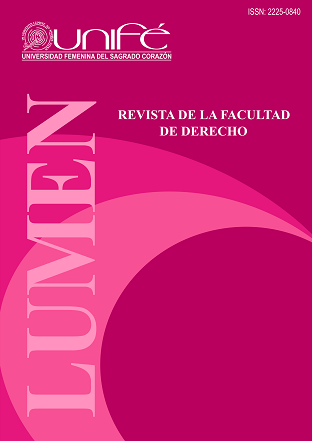De la interdiccion al sistema de apoyos: desafio a la judicatura peruana
DOI:
https://doi.org/10.33539/lumen.2019.v15n2.1823Keywords:
Exercise capacity, support, disabled person and fundamental rights.Abstract
This article will comment on the experience of a family judge who has to be flexible for each specific case, especially in the process of interdiction. It will also report on how interdiction processes have been taking place until before the amendment of the law and how extensive the process is. The aim of judges, including the legislator, is to protect the person with different abilities from everything and everyone, and to protect society from individuals without discernment, that is, absolute or relative incapacities. Therefore, the adoption of Legislative Decree 1384 breaks with the paradigms of justice operators and society as a whole, since it takes as its basis the Convention on the rights of persons with disabilities, which states that all persons with disabilities may not be victims of any discrimination and that they are fully entitled and able to exercise their fundamental rights, As a result, the judges will not appoint any more persons to replace their will, they are currently appointed persons who are solely their supporters.









